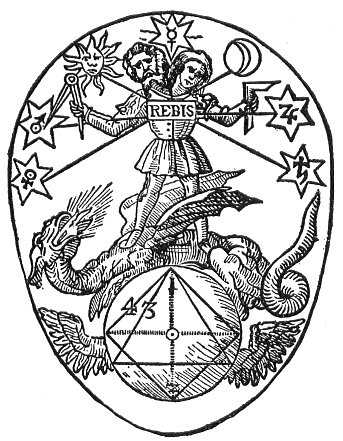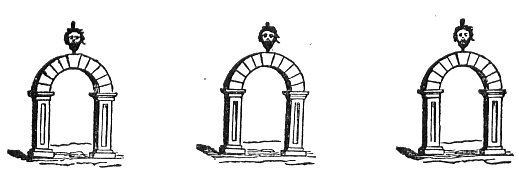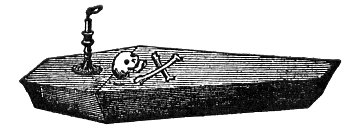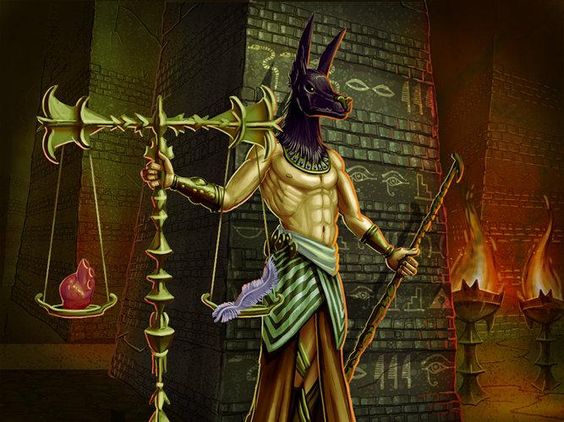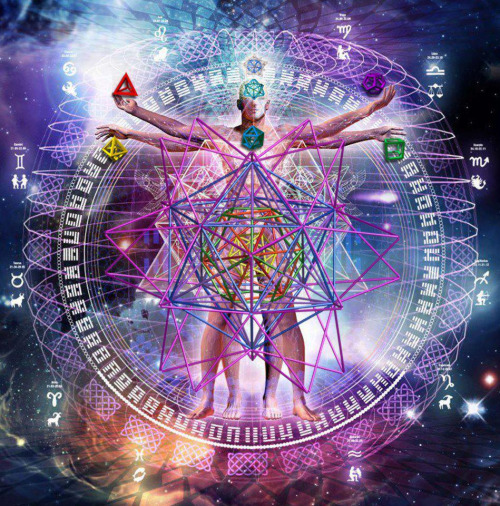Yet the Mason is not indifferent as to the fate of the soul, after its present life, as to its continued and eternal being, and the character of the scenes in which that being will be fully developed. These are to him topics of the profoundest interest, and the most ennobling and refining contemplation. They occupy much of his leisure; and as he becomes familiar with the sorrows and calamities of this life, as his hopes are disappointed and his visions of happiness here fade away; when life has wearied him in its race of hours; when the is harassed and toil-worn, and the burden of his years weighs heavy on him, the balance of attraction gradually inclines in favor of another life; and he clings to his lofty speculations with a tenacity of interest which needs no in-junction, and will listen to no prohibition. They are the consoling privilege of the aspiring, the wayworn, the weary, and the bereaved.
To him the contemplation of the Future lets in light upon the Present, and develops the higher portions of his nature. He endeavors rightly to adjust the respective claims of Heaven and earth upon his time and thought, so as to give the proper proportions thereof to performing the duties and entering into the interests of this world, and to preparation for a better; to the cultivation and purification of his own character, and to the public service of his fellow-men.
The Mason does not dogmatize, but entertaining and uttering his own convictions, he leaves every one else free to do the same; and only hopes that the time will cone, even if after the lapse of
p. 233
ages, when all men shall form one great family of brethren, and one law alone, the law of love, shall govern God’s whole Universe.
Believe as you may, my brother; if the Universe is not, to you, without a God, and if man is not like the beast that perishes, but hath an immortal soul, we welcome you among us, to wear, as we wear, with humility, and conscious of your demerits and short-comings, the title of Grand Elect, Perfect, and Sublime Mason.
It was not without a secret meaning, that twelve was the number of the Apostles of Christ, and seventy-two that of his Disciples: that John addressed his rebukes and menaces to the Seven churches, the number of the Archangels and the Planets. At Babylon were the Seven Stages of Bersippa, a pyramid of Seven stories, and at Ecbatana Seven concentric inclosures, each of a different color. Thebes also had Seven gates, and the same number is repeated again and again in the account of the flood. The Sephiroth, or Emanations, ten in number, three in one class, and seven in the other, repeat the mystic numbers of Pythagoras. Seven Amschaspands or planetary spirits were invoked with Ormuzd: Seven inferior Rishis of Hindustan were saved with the head of their family in an ark: and Seven ancient personages alone returned with the British just man, Hu, from the dale of the grievous waters. There were Seven Heliadæ, whose father Hellas, or the Sun, once crossed the sea in a golden cup; Seven Titans, children of the older Titan, Kronos or Saturn; Seven Corybantes; and Seven Cabiri, sons of Sydyk; Seven primeval Celestial spirits of the Japanese, and Seven Karfesters who escaped from the deluge and began to be the parents of a new race, on the summit of Mount Albordi. Seven Cyclopes, also, built the walls of Tiryus.
Celsus, as quoted by Origen, tells us that the Persians represented by symbols the two-fold motion of the stars, fixed and planetary, and the passage of the Soul through their successive spheres. They erected in their holy caves, in which the mystic rites of the Mithriac initiations were practised, what he denominates a high ladder, on the Seven steps of which were Seven gates or portals, according to the number of the Seven principal heavenly bodies. Through these the aspirants passed, until they reached the summit of the whole; and this passage was styled a transmigration through the spheres.
p. 234
Jacob saw in his dream a ladder planted or set on the earth, and its top reaching to Heaven, and the Malaki Alohim ascending and descending on it, and above it stood INUH, declaring Himself to be Ihuh-Alhi Abraham. The word translated ladder, is ו ?S?Lמ Salam, from ו ?S?L?L, Salal, raised, elevated, reared up, exalted, piled up into a heap, Aggeravit. ו ?S?L?L?H Salalah, means a heap, rampart, or other accumulation of earth or stone, artificially made; and ו ?S?L?O, Salaa or Salo, is a rock or cliff or boulder, and the name of the city of Petra. There is no ancient Hebrew word to designate a pyramid.

Moe is the founder of GnosticWarrior.com. He is a father, husband, author, martial arts black belt, and an expert in Gnosticism, the occult, and esotericism.

